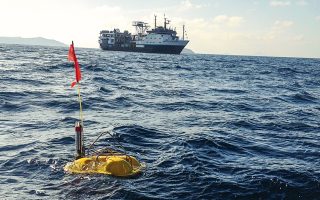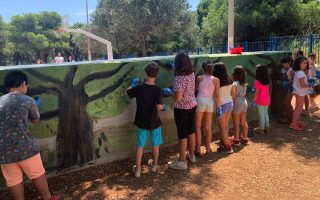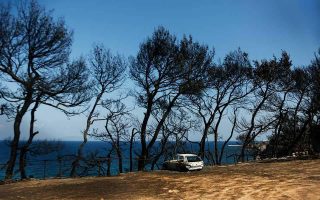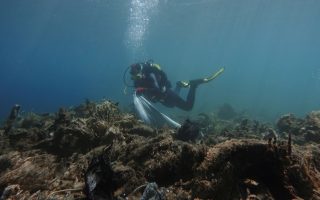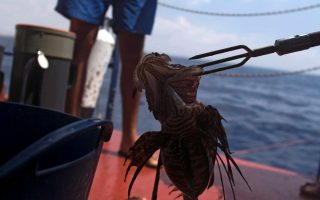Endangered Mediterranean monk seal gets new allies at the Alonissos marine park
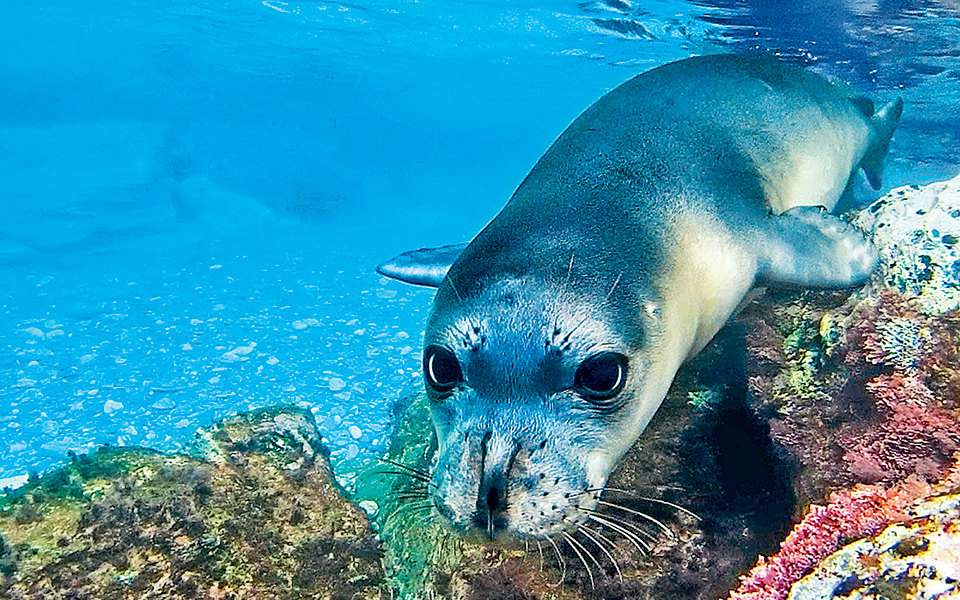
New alliances are being forged on the Greek island of Alonissos to bolster the protection of the National Marine Park, an important habitat for the endangered Mediterranean monk seal, among other species.
The understaffed park management agency and overworked coast guard have joined forces with activists, non-governmental organizations and local fishermen in a bid to safeguard the park’s biodiversity, but also the interests of the local community that stem from its operation. Recent studies are already pointing to a stabilization in the area’s seal and fish populations as a result of this effort.
The National Marine Park of Alonissos was established in 1992 and after being expanded in 2018 to include significant parts of the area off the coasts of Skopelos and Skiathos to reach 2,315 square kilometers, is one of the largest protected marine zone in the Mediterranean. Needless to say, guarding such a large area and ensuring that rules are not being violated (particularly at the core around the islet of Piperi) is no easy task for the management agency, whose extremely limited resources stretch only to one boat with two staff members, or the over-taxed coast guard.
This year, however, patrols were increased thanks to a donation from the non-governmental Thalassa Foundation, which provided the park management agency with two speedboats (including a fuel budget) and four staff to ensure that the park is being supervised more completely.
“We believe that Alonissos is one of the most important areas in the country in terms of its ecosystem,” says the vice-chair of Thalassa, Vera Alexandropoulou, adding that the foundation is also working with the Hellenic Society for the Study and Protection of the Monk Seal (Mom).
“We are also testing new ways of monitoring activity inside the park,” she adds, explaining that one of these ways will be to install 3G motion detection cameras that will alert the coast guard of any vessels violating the 3 nautical mile no-go zone around Piperi.
The initiative further includes raising awareness among the local fishing community and ensuring that fishermen know the risks and consequences of violating park protection rules.
Studies by the Aristotle University of Thessaloniki, which has a scientific team run by ichthyology professor Athanasios Tsiklitiras monitoring fish stocks in the national park since 2017 (with funding from Thalassa and the cooperation of the local fishermen’s’ association), are encouraging.
“The state of fish stocks is poor in all of Greece’s seas. In Alonissos, however, we have found that fishermen can still catch a decent quantity of decent-sized fish and are doing better than their colleagues in other parts,” explains Tsiklitiras.
“The problem, of course, is that because the area has succeeded in maintaining satisfactory fish stocks as a result of the national park, it attracts professional and amateur fishermen from other areas, increasing the pressure on stocks and, therefore, the need for surveillance. Just the other day, for example, a spear-fisherman was caught [in an off-limits area] with several large dusky groupers, which are an endangered species,” the professor adds.
“We have seen an increase in the past few years in the populations of seasonal/migratory fish like anchovies and sardines. The situation inside the national park is without doubt better than in other area and we hope to see even better results in the years to come,” says the director of the National Marine Park of Alonissos, Spyros Iosifidis.
“What we can also say is that the Mediterranean monk seal population has also stabilized with between four to eight births per year in recent years,” he adds.
With regard to patrols, the agency has decided to give the only boat it owns outright to the coast guard, which needs all the help it can get so it can carry out its duties as a law enforcement body.
“The boat is bigger than what we need and hard to keep. It also requires more people and skills that we cannot provide,” Iosifidis says about the decision.
